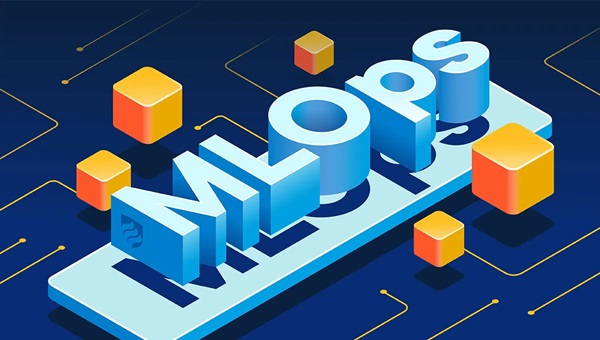MLOps, short for Machine Learning Operations, has emerged as a pivotal methodology to tackle contemporary challenges in the field. By automating the entire lifecycle of ML model development and deployment, MLOps optimizes processes and enhances organizational agility. It ensures continuous monitoring, updating, and optimization of ML models to sustain optimal performance in practical applications.
In today’s fiercely competitive job market, a comprehensive MLOps Course is essential for acquiring critical skills such as automating ML workflows, deploying models effectively, and managing dynamic data environments. This knowledge empowers professionals to seamlessly integrate advanced ML capabilities into business strategies, fostering innovation and ensuring sustainable growth. Investing in a high-impact MLOps curriculum not only expands career horizons but also drives organizational success by leveraging the full potential of machine learning technologies.
Exploring Real-World Applications of MLOps: Case Studies and Insights
In exploring real-world applications of MLOps, case studies reveal how leading companies like Google, Netflix, and Amazon leverage MLOps to transform their business operations. Google utilizes MLOps to enhance search algorithms, ensuring users receive efficient and relevant search results. Netflix employs MLOps to personalize content recommendations, significantly enhancing user engagement and retention. Meanwhile, Amazon leverages MLOps to optimize logistics, improving delivery efficiency and customer satisfaction.
Several key lessons emerge from these implementations. Successful adoption of MLOps hinges on strong collaboration among data scientists, engineers, and IT operations teams. Companies prioritize establishing robust data pipelines and automating model deployment to ensure scalability and reliability. Continuous monitoring and evaluation are crucial for promptly identifying and addressing operational challenges, ensuring the smooth functioning of MLOps frameworks.
Looking towards the future, MLOps continues to evolve as a critical component of AI-driven operations. Advancements in AI technologies will further optimize model performance and scalability through MLOps practices. Automation will streamline processes, accelerating the deployment of AI solutions on the market. Moreover, innovations in cloud computing and edge AI will enable more efficient and adaptable MLOps workflows, catering to diverse business requirements and enhancing overall operational efficiency.
Mastering MLOps: Enhancing Machine Learning in Production
Machine Learning Operations (MLOps) optimizes the integration of machine learning within high-production environments, blending principles from DevOps, data engineering, and machine learning. This approach ensures efficient model deployment, continuous monitoring, and iterative enhancement. By automating workflows, MLOps enhance scalability and reliability, which are critical for adapting models to evolving data and business requirements.
MLOps encompasses automating data pipelines, version control, rigorous testing, and real-time monitoring to uphold optimal model performance. In the United States, MLOps plays an increasingly pivotal role across sectors such as finance, healthcare, and technology, where precise, data-driven decisions are indispensable. Mastery of MLOps equips professionals with the competencies to harness machine learning effectively, fostering innovation and gaining a competitive edge in today’s fast-evolving digital landscape.
Deploying new ML models in production environments poses substantial challenges. It entails training models on extensive production datasets, seamless deployment, and ensuring continuous maintenance and optimization. This process demands meticulous attention to detail and a robust framework to sustain model reliability and performance over time.
Ensuring Efficient Workflow Through Thoughtful Tool Selection
Choosing the appropriate tools and technologies is pivotal for maintaining a streamlined workflow due to several critical reasons:
- Enhanced Efficiency: Optimal tools streamline tasks, reducing manual effort and saving valuable time.
- Seamless Integration: Compatible tools ensure smooth integration across systems, preventing data silos and workflow bottlenecks.
- Scalability: Scalable tools support business growth, accommodating expanding operations without disruption.
- Improved Security: Well-vetted tools bolster data security and ensure compliance with regulatory standards.
- Facilitated Collaboration: Integrated tools promote teamwork by encouraging communication and resource sharing among team members.
- Encouraging Innovation: Advanced technologies enable continuous improvement and innovation within workflows.
Selecting tools tailored to specific needs and aligning with industry standards not only optimizes performance and boosts productivity but also enhances competitiveness in the dynamic global marketplace.
Driving Business Success with MLOps in AI and ML
MLOps play a critical role for businesses, corporations, and professionals alike. While many organizations invest heavily in AI and machine learning, the full potential of these technologies often needs to be realized within their operations.
The global machine-learning industry is predicted to expand at a compound annual growth rate of 38.8% between 2022 and 2029. Currently, over 82% of companies use machine learning models to boost productivity.
However, studies indicate that 90% of AI/ML models never reach production due to inadequate leadership in MLOps implementation, which is crucial for project success.
MLOps, or machine learning operations, helps organisations overcome barriers to AI adoption, ensuring maximum return on investment and optimising business outcomes. By implementing robust MLOps practices, companies can enhance the efficiency, reliability, and effectiveness of AI and ML systems.
Advanced programs in AI and ML, such as the IISC MLOps Course, are designed to equip professionals with the skills to lead AI/ML projects effectively. These programs are tailored for experienced professionals aiming to deepen their expertise in end-to-end machine learning systems for real-world applications. Participants gain practical insights into industry-standard MLOps tools and techniques.
Conclusion
The strategic implementation of MLOps enables teams to streamline operations, reduce development cycles, and mitigate risks associated with model deployment. It facilitates cross-functional collaboration between data scientists, engineers, and IT operations, ensuring alignment with business objectives. By maintaining model integrity and performance over time, MLOps nurtures a consistent culture of continuous growth and learning within organizations.
Moreover, proficiency in MLOps equips professionals with the ability to adapt to quickly evolving technological landscapes and shifting industry demands. To keep up with industry trends and effectively thrive in the competitive global market, where rapid advancements in AI and machine learning are altering the discourse of multiple industries. Ultimately, a robust MLOps framework not only enhances individual capabilities but also strengthens organizational resilience and competitiveness in the digital era.

